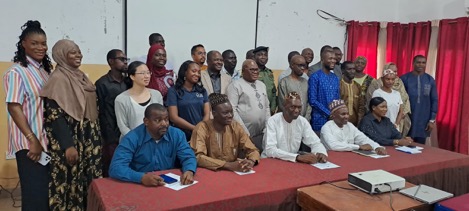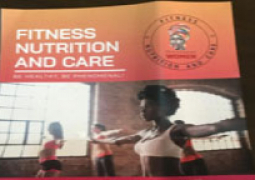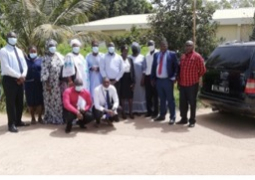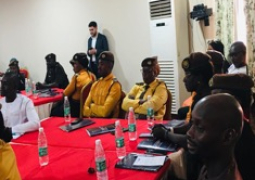
The NAFF serves as a platform to address issues affecting Food and Nutrition security in the country.
The meeting held at NaNA Conference Hall in Bakau, brought together different stakeholders who went through thorough discussions aimed at addressing issues affecting food and nutrition security.
The meeting was funded by the Catholic Relief Services (CRS) through the Large-Scale Food Fortification Project.
The meeting sought to review minutes of last meeting and matters arising, update on the implementation of fortification and bio-fortification interventions by stakeholders and planned activities for the next quarter.
Welcoming the gathering, Malang N. Fofana, NaNA Executive director, said the stakeholder engagement was part of their drive to move the agenda of food fortification in the country.
The Gambia, he added, is one of the countries that made remarkable efforts in advancing food fortification in the sub-region, saying the forum would therefore accord stakeholders an opportunity to deliberate and arrive at common goal that is geared towards wellbeing of populace.
“NAFF brings in stakeholders from the public and private sector and civil society to ensure that we have an inclusive approach to food fortification that will help us to achieve some of the challenges we are facing as a country.”
He added, “We are challenged when it comes to malnutrition, under nutrition and over nutrition. Challenges also in terms of food security, in poverty and on quality access to specific services and one of the factors that can contribute to that is that people are not consuming quality diversified diet.”
Koblan Koffi, technical director for Public-Private Partnership and Alliance, Large Scale food fortification at the Catholic Relief Services (CRS), reminded that CRS is an American non-governmental founded in 1943 by the American bishops and is the official international humanitarian agency of the American Catholic community.
He added that CRS works in over 117 countries across the world, including The Gambia, where they are implementing malaria programs and a major school feeding program.
On the large-scale food fortification project in West Africa, Mr Koffi revealed that they started the project in 2022 and are active in the 15 ECOWAS countries.
The project, he added, aims to combat malnutrition by reducing micronutrient deficiencies, saying to achieve their objectives, they are working in collaboration with WAHO, the ECOWAS Commission and all other technical and financial partners within the Regional Alliance for Fortification.





